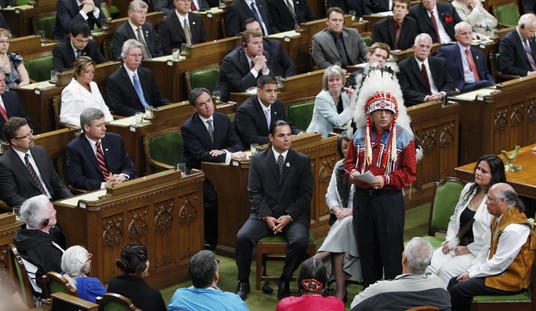WASHINGTON – As President Trump decides how many refugees to allow into the U.S. in 2018, the State Department’s refugee program director spoke positively today about the economic impacts from resettling displaced immigrants.
“We see, and some of this is more anecdotal than we would like, that refugees do very, very well, and it’s one of the reasons that we would like to see more long-term studies about refugee success and perhaps failure so that we can we really see those areas that we should focus on more,” Lawrence E. Bartlett, director of refugee admissions since 1999, said at the Heritage Foundation.
Bartlett added that most refugees admitted are not competing with Americans for jobs, particularly entry-level workers employed by hotels, meat-packing plants and other industries.
“They’re taking jobs that are otherwise unfilled, and refugees, frankly, do quite well,” he said. “We’ve been petitioned by some industries to resettle more refugees in their locations because they find refugees to be such good workers.”
The economic impact of refugees has been hotly debated in recent weeks, following a New York Times report claiming that the White House might have suppressed a Department of Health and Human Services study showing that refugee resettlement has netted the U.S. $63 billion over the past decade. The report was completed in July but never released publicly.
The U.S. government in 2016 accepted 85,000 refugees. Trump, as part of the travel ban invoked through executive order, capped the amount of refugee entry at 50,000 for 2017. The White House has until Oct. 1 to determine a cap for 2018, and Bartlett said the administration is on schedule. The Department of Homeland Security has reportedly recommended a 40,000 cap on refugees because the agency is unable to handle anything more, considering there is a backlog of about 275,000 pending asylum cases.
Bartlett, who prior to joining the State Department served as a Peace Corps director for nearly a decade, leads a department that identifies, processes and receives refugees from all over the world. His office has resettled more than 200,000 refugees to the U.S. in the past three years. During today’s discussion, he noted that 99 percent of the world’s refugees are not resettled.
“It’s incumbent upon us as a resettlement country, it’s incumbent upon (the United Nations High Commissioner for Refugees) to use this tool correctly,” he said. “Who should be the lucky person that has the opportunity to be resettled to the U.S. or to one of the other 29 countries in the world that resettle refugees?”
According to The New York Times, White House chief policy adviser Stephen Miller has argued that the cost of resettling the current number of refugees is outpacing the economic gain. The newspaper, however, obtained a draft report from HHS claiming that refugees “contributed an estimated $269.1 billion in revenues to all levels of government” between 2005 and 2014, which was about $63 billion more than the total cost.
White House officials, according to the newspaper, have said those conclusions were “illegitimate, politically motivated and disproved” in the final HHS report. Those officials claimed that the per-capita cost of a refugee is higher than the average American.
Bartlett said that while it’s clear the administration will likely lower the cap even further, the fundamental values of the program will not change. He added that the administration is exploring using the program as a foreign policy tool and a means for assisting foreign allies.
He also noted that refugees “have no right” to come to the United States and, in order to resettle, they must meet strict criteria. A recent Heritage Foundation study on the program, he said, rightly assessed refugees as the most highly vetted group of immigrants coming to the United States.









Join the conversation as a VIP Member